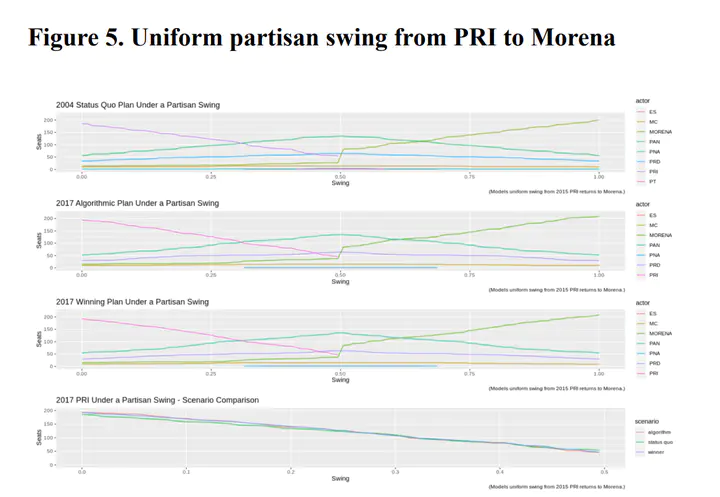
Abstract
Redistricting affects directly the translation of votes to seats, and is therefore one of the most politicized procedures within electoral management. Mexico’s approach is unique – since 1996 an independent board has been creating plans algorithmically. Parties, however, are able to formulate hundreds of counter-proposals in a closed-door environment. We ask: Why and when do political parties engage in the process, and what is the political consequence of their participation? To address these questions, we analyze a unique data set comprising all the submitted partisan map proposals during the 2013 and 2017 redistricting rounds. Our analysis reveals parties’ plans have surprisingly marginal partisan effects. We find a combination of redistricting criteria, demographic shifts, and voting preferences – rather than partisan gerrymandering – account for the stability of electoral outcomes.